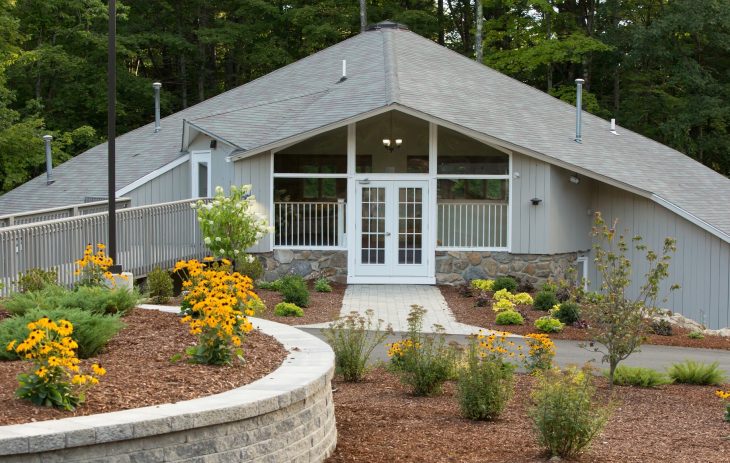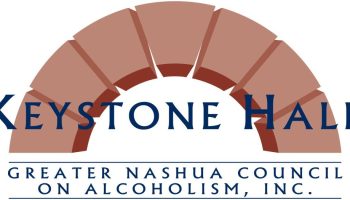About New Freedom Academy Canterbury
New Freedom Academy is a Granite Recovery Center that treats those with mental health and substance use disorders in Canterbury, New Hampshire. You’ll get medical detox, addiction medication, and therapy either as a live-in client, or on a part time basis.
You’ll find them tucked away in peaceful farmlands in a beautiful facility surrounded by 17 acres of tall trees and fresh breezes. There’s also two ponds nearby and a motor speedway down the road if racing helps you relax.
Detox At Your Level in Quiet Canterbury
Removing the substances from your system is the first step in recovery. While everyone goes through detox, your needs, levels of discomfort, and what will help you to stay safe depend on many factors. This includes how long you’ve been using, what substances you’ve been hooked on, and how much you used each time. Here, you’ll get the right level of detox under the care of medical professionals.
Conquering Addiction and Mental Health Issues Using REST
Your treatment will use their recovery education and skills training method. I love that they’ve combined their clinical know-how and practices with the trusted 12 Step method. If you’re experiencing any addiction related mental health issues such as post traumatic stress, anxiety or depression.
Another aspect of recovery that I appreciate here is their holistic therapy options. If you have a chronic illness they’ll take you through the Illness Management and Recovery program. They offer therapy for grief and loss as well as anger management. For those who’ve been through trauma or abuse, find respite in the Seeking Safety.
Your group time isn’t limited to pure therapy, but you can also join the art and/or music group. Express your emotions through art or music groups or learn practical ways to manage your stress with the Stress Management group. As an alternative to 12 Step recovery, you can do SMART Recovery, which has less of a spiritual emphasis.
Levels of Care
-
Inpatient
Inpatient and residential programs provide round-the-clock medical and emotional support as you live at the treatment facility. This level of care may be recommended if you have severe addictions or mental health conditions since it removes outside distractions and allows you to focus solely on therapy.
-
Aftercare
Aftercare programs provide ongoing support after you complete a rehab program. They may include several components to help you maintain sobriety including therapy, community support groups and relapse prevention strategies. This gives you a network of resources as you reintegrate into your daily life.
-
Dual Diagnosis
Dual diagnosis programs address substance use disorders and co-occurring mental health conditions simultaneously. This integrated approach to care improves the likelihood of long term recovery and stability by addressing the root causes of addiction.
-
Intervention
An intervention is a structured and professionally guided conversation with an individual who is struggling with addiction. During the conversation, family and friends will encourage you to seek treatment. This is often a pivotal step for those resistant to getting help.
Detox Service Setting
-
Inpatient Detox
Inpatient detox occurs in a dedicated treatment facility. You’ll live there around the clock and receive intensive medical support and supervision to help manage your withdrawal symptoms. It is suitable for individuals with moderate to severe addictions as it ensures a stable detox environment.
Programs
-
Adult (18+)
Adult programs address the substance use and life challenges specific to adults. Therapists can deliver sessions in individual, group and family settings. Services often include job support and life skills training in a structured environment.
-
Alcohol Detox
Alcohol detox programs offer medical support to help individuals withdraw safely from alcohol. Your care team may use medications to ease your symptoms and provide medical monitoring to address complications.
-
Cognitive Behavioral Therapy
Cognitive behavioral therapy focuses on changing harmful thought patterns and behaviors associated with addiction. You’ll learn healthier coping mechanisms by identifying and replacing negative thoughts. This improves your emotional resilience and decreases your relapse potential.
-
Drug Detox
Drug detox programs support individuals who are withdrawing from addictive substances like cocaine and heroin. Medical support helps you manage symptoms in a controlled and safe environment so you can achieve initial sobriety.
-
EMDR Therapy
EMDR stands for eye movement desensitization and reprocessing therapy. It helps you process traumatic memories that may underlie addiction. You’ll learn how to reduce emotional distress and begin healing from past events. This makes it effective for trauma related addiction causes.
-
Men
Men's programs address substance use while also considering the social pressures, family roles and mental health concerns that are specific to men. You’ll learn healthy coping mechanisms as you build emotional resilience and develop communication skills.
-
Opioid Detox
Opioid detox uses medications to ease severe withdrawal symptoms. It also includes medical supervision to help you manage potential complications. These services allow you to stabilize and begin a recovery plan.
-
Seniors (65+)
Senior programs address the unique needs of older adults like chronic pain, grief and isolation. Programs include peer support and medical oversight for age related health concerns. The goal is to improve quality of life and promote sober aging.
-
Women
Women's programs offer a safe and supportive space to focus on gender specific issues such as trauma, family roles and mental health conditions. Therapists tailor the sessions to address women's needs and foster empowerment in a healing and nurturing environment.
-
Young Adult (18 - 25)
Young adult programs are designed for individuals who are transitioning into adulthood. Topics of discussion typically include identity, independence and peer relationships. Providers may also offer life skills training and career support.
Payment Options
- Private Insurance
- Self Pay
Accreditations
-
 CARF
CARF
Amenities
- Fitness Center
- Private Transportation
- Yoga Studio
Contact
367 Shaker Road
Canterbury, NH 03224





